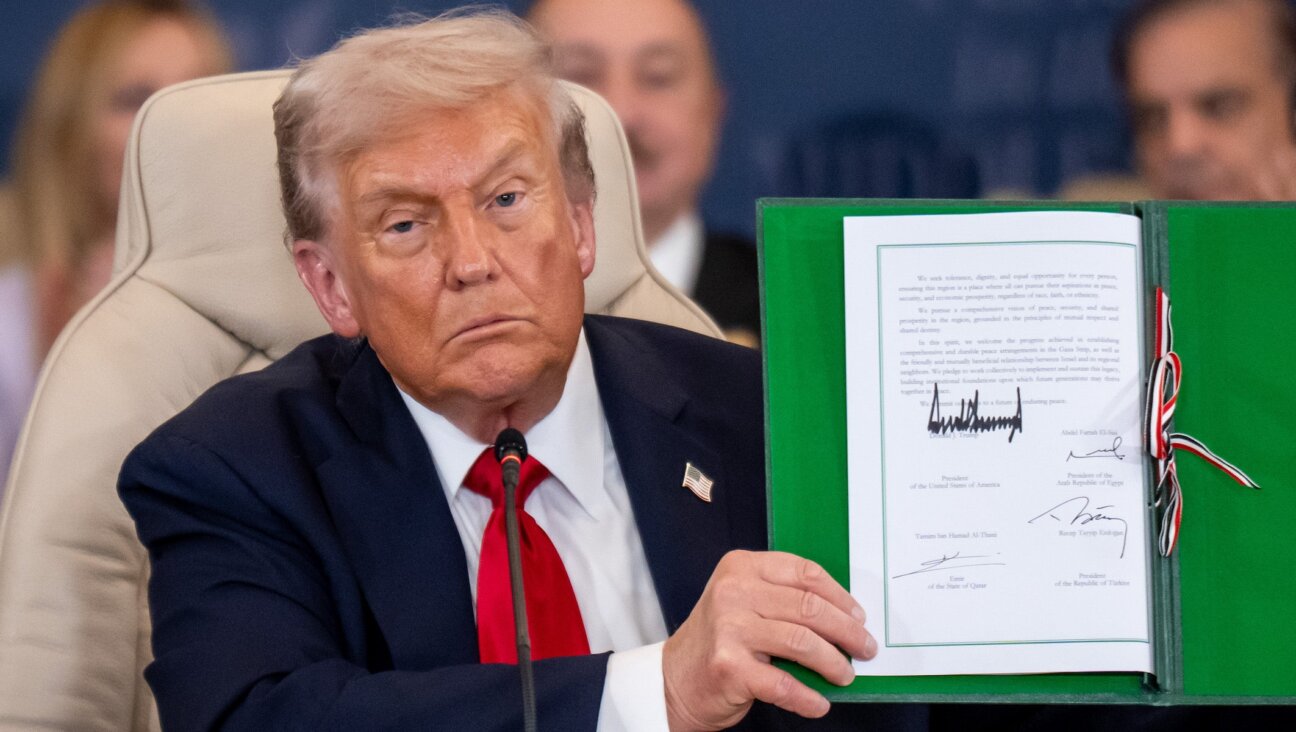Closing the Door on Moderation, One Seat at a Time
Senator Joseph Lieberman’s loss in Connecticut’s Democratic primary last week is symptomatic of a larger problem facing those who seek to govern the United States. The shock over a politician as prominent as Lieberman losing a primary for renomination, as well as the depth of feeling over the war in Iraq and the focus on the Democrats’ efforts to regain control of one or both houses of Congress, have obscured the more important concern revealed in Ned Lamont’s upset victory.
Putting aside how one feels about Lieberman personally and how one evaluates the president’s war policy, we need to confront the reality that American politics have evolved to the point where those who are willing to reach across the divide and seek bipartisan solutions to the nation’s problems are a threatened species.
The problem emanates from a confluence of forces, in particular the partisan gerrymandering of House seats and the nature of the nominating process for both House and Senate seats — and the increase of bitter partisanship in Washington that has resulted, at least in part, from those factors. It is a problem that faces Republicans as much as Democrats.
The governing parties oppose each other on issue after issue. Those who cross party lines are viewed with suspicion, and they have become susceptible to challenge in their own party’s primary when they seek renomination.
In 2004, Pennsylvania Republican Arlen Specter, seeking his fifth term, was challenged for renomination by Rep. Pat Toomey, a staunch conservative who now heads the Club for Growth. Specter survived by just 17,000 votes, out of more than 1 million cast. On the same day that Lieberman lost in Connecticut, little known Republican Rep. Joe Schwarz of Michigan was denied renomination. Schwarz, loyal to the GOP leadership on a vast majority of votes, was accused by his Club for Growth-backed challenger as being too liberal for his district on issues such as abortion, tax policy and immigration.
Lieberman, Specter and Schwarz were all backed by their party leaders. President Bush and mainstream party leaders such as John McCain campaigned for the two Republicans, and all but a handful of Lieberman’s Senate colleagues backed him in the primary. But Specter barely survived his challenge, and Lieberman and Schwarz lost.
Last week primary voters showed yet again that they are of a different mind than party leaders, who usually favor the colleagues they have worked with in government. The primary electorate, however, has also clearly demonstrated that it does not reflect the sentiments of the general election electorate. Those who turn out to vote in August are not even representative of Democrats or Republicans who vote in November. For some time, political scientists have known that those who vote in primaries are more ideological and more committed than the average party member. Ideological organizations, such as the Club for Growth on the Republican side and MoveOn.org for the Democrats, push their followers to participate in primaries. Motivated ideologues raise the heat of the contest, stoking the fires in those who share their passions.
For moderates who seeks consensus, responding is difficult. There are few fanatically passionate supporters of centrism.
Most Americans do not follow politics closely, and certainly not in August or September, when the national media has yet to focus on the November elections. Relatively few are politically motivated enough to participate in party primaries, which is why turnout is typically so low and why those at the extremes have an advantage.
The Lieberman and Schwarz scenarios may very well play out again in this election season. Primary elections have yet to been held in 16 states. Fourteen governorships and an equal number of Senate seats, as well as 118 seats in the House, are at stake.
Moderate incumbents are threatened in a number of the primaries, most notably Republican Senator Lincoln Chafee of Rhode Island. In a number of open seats, ideological purity could well be the deciding factor.
Senate races in which incumbents are seriously challenged are rare, and in any case, ideological extremism might be muted by the need to succeed in general election campaigns. But senators who do face intense competition are almost always of one type: moderates under scrutiny by the ideologues in their own party.
The pattern goes back some time, at least to 1978, when moderate Republican Clifford Case of New Jersey lost a primary for renomination to Jeffrey Bell, one of the first to campaign as a pure Republican advocating supply-side economics. The ideologues do not seem to care if their victory will aid the opposing party in the general election, as did Case’s loss in New Jersey and as would a Chafee loss in Rhode Island. Transforming the party— achieving ideological purity — seems to be a higher goal.
In the House, the situation is compounded by partisan redistricting that has resulted in a vast majority of the seats being safe for one party or the other. If a district has been drawn so that it is safe for the Republicans, the only real competition is in the Republican primary. Pragmatic politics force candidates to the far right, to appeal to the primary electorate.
In a parallel fashion, in districts drawn to be safe for the Democrats candidates are forced to the left. In the redistricting that followed the 2000 census, in state after state lines were drawn to achieve partisan advantage. The Supreme Court has never ruled that a partisan gerrymander is unconstitutional.
The extent to which partisan gerrymandering dominates the redistricting process has been laid out for everyone to see in Texas. Led by Tom DeLay, the Republicans, who captured control of the state legislature in 2002, redrew districts that had been in effect for only two years — for the express purpose of gaining seats.
They did so successfully, and while some aspects of the gerrymandering did not pass Supreme Court review, the process of redrawing seats between reapportionments was found to pass constitutional muster. The result is that in the years ahead, there will be more and more districts in which only ideologically pure candidates need apply.
Lieberman and Schwarz have already been humbled by party hardliners, and Chafee and others may soon suffer the same fate. Whether it is because of their prominence in a closely divided Senate or because of partisan redistricting that creates non-competitive seats in the House, their primary struggles are troubling because they signal the difficulties ahead for moderates.
In order to work the way it was intended, the legislative process needs legislators willing to compromise, people who understand that crossing party lines is not a capital crime. Today, the electoral process is stacked against such legislators, and in the years ahead we are likely to see fewer and fewer candidates who value bipartisanship.
Sandy Maisel, director of the Goldfarb Center for Public Affairs and Civic Engagement at Colby College, is editor of “Jews in American Politics” (Rowman & Littlefield, 2001).
















